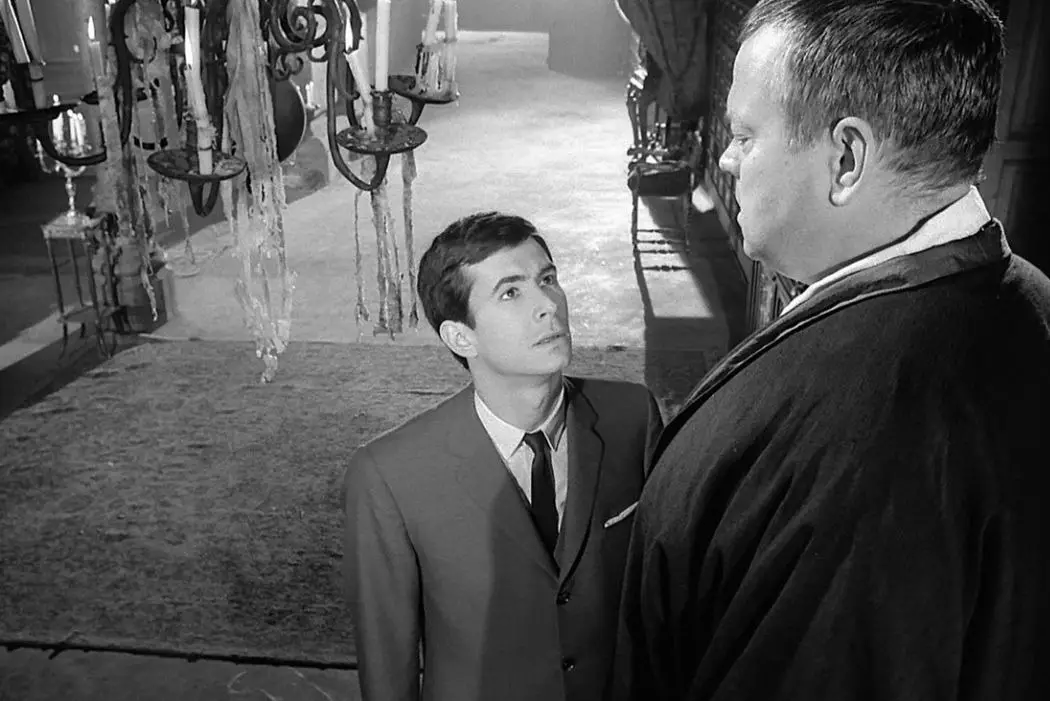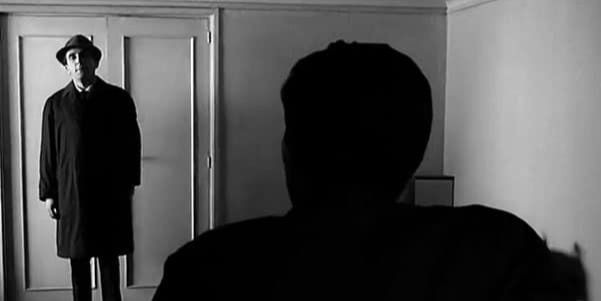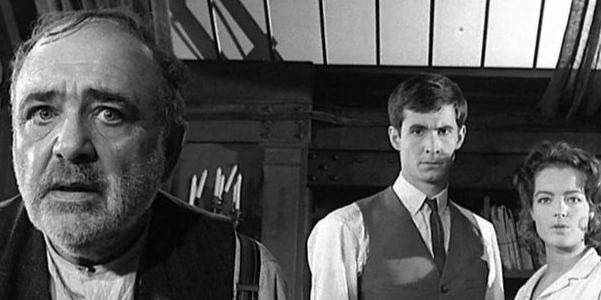THE TRIAL: Orson Welles’ (Other) Forgotten Masterpiece

lover of film
From the DaVinci of the silver screen to the face of Paul Mason California Wine, the life of Orson Welles was a story all its’ own. When only gazing at the extremities of his existence we get a tale of a man’s descent from the precipice of cinema to just another face within the endless procession of late-night TV.
But the essence of his life was much more than that. His genius extended far beyond Citizen Kane venturing into the criminal underworld of Mexico with Touch of Evil, the annals of Shakespeare with Chimes at Midnight, and the esoteric world of art forgery with F is For Fake.
Never known to be complacent, Welles always aimed to push the boundaries of cinema. This masochistic desire to carry the gargantuan burden of progress and innovation upon his shoulders often resulted in brilliant works of art, while simultaneously muddying his reputation. Thus, his films were forgotten.
But with the recent rejuvenation of interest in his works, more and more have pillaged that treasure trove of genius resting within the catacombs of obscurity. And in this treasure trove, his 1962 film The Trial glitters with a surrealist and nightmarish sheen that’s a stark departure from his already diverse filmography.
Kafka On The Screen
The creative lives of Orson Welles and Franz Kafka, share a semblance of similarity. One a filmmaker and the other a writer, they both put out exemplary works of their respective eras. And unfortunately, the full extent of their genius was only appreciated after they passed, as is the story of many great artists. Maybe Welles saw a little of himself in Kafka when he took up the task of adapting his works to film, but before we explore the film itself, it’s essential that we develop a basic understanding of Franz Kafka and the crux of his works.
The art form of surrealism is concerned with lighting up the darkest reaches of our consciousness, unveiling all that we unknowingly suppress. Whether it be our dormant hopes and dreams or our fears, guilt, and self-disgust. Kafka, whose life was marred with abuse and depression, utilized surrealism in hopes of accessing the latter of the two. The Trial is Kafka attempting to construct a story dealing with these subconscious fears, guilt, and self-disgust while overlaying it with themes about the oppressive nature of bureaucracy.

This unprecedented take on surrealism created an atmosphere so unique that the word “surreal” itself failed to encapsulate the tumult of emotions his stories evoked. They could only be described in accordance with no-one but Kafka himself. Thus was born, the term Kafkaesque.
What is Kafkaesque? Well, whereas a great number of surrealist stories play out in what we’d call “Dream Logic” – the weird and unusual rationale behind our dreams that ceases to make any sense when we awake but is completely normal when we exist within those warped and shadowed realms – Kafka’s stories play out with the logic of a nightmare. No, not that of monsters and phantasms, but that of having no agency over your life. The horrors of unwillingly being a cog within this grand and oppressive machine called existence.
“Somebody Must Have Been Telling Lies About Josef K.”
Josef K. (Anthony Perkins) awakens to a knock at his door. A man in black enters, beady-eyed and stone-faced. His mind is barely given enough time to adjust to the interloper before a torrent of questions is unleashed upon him. Why do you think this? Why do you think that? Why…?
Josef K. nervously stumbles over his answers folding under the torrent of “whys,” before questioning the presence of the sinister intruder himself. “Why you’re under arrest.” The man in black responds. From then on Josef K is thrust into the madness, left to wander aimlessly through landscapes of infinite desolation and endless seas of bureaucracy, all in an attempt to find out why. Why am I under arrest?
Welles captures the Kafkaesqueness of The Trial so well by immersing the viewer in a seemingly intangible and alien atmosphere. Whether it be the contradicting styles of architecture, the lack of one unanimous accent, or its many multi-faceted characters, Welles gets us to believe that this story is not of our world. But somewhere off in the void where the fabrics of space, time, and reason, buckle under its absurdity.

Though the interior and exterior expanses of the film seem endless, it still manages to make the viewer feel very claustrophobic. From the get-go, there’s this overwhelming sense of urgency that pushes the story forward. And as Josef K. travels deeper into the labyrinthine world of The Trial, the characters and obstructions he encounters only intensify that sense of claustrophobia and urgency. So that no matter where he goes there will always be someone watching him or someone waiting to throw him further off course.
All these unsettling tactics that Welles so expertly employs, are done in favor of instilling an inherent sense of guilt in Josef K. His arrest is very well unjustified and built upon no prior foundation, but as the story unfolds the viewer starts to realize that Josef K. himself doesn’t totally believe he’s truly innocent.
We see this with the many sexual innuendos and allusions to smut and pornography that always follow him and his quick aversion to them. Sex and guilt are two things that are intrinsically linked within modern or at least Western society. And by not omitting this aspect from the film, he utilizes Kafka’s exploration of guilt and self-disgust through our subconscious desires.
Anthony Perkins
Anthony Perkins was born to play characters that feel uncomfortable in their own skin. Most renowned for his role as Norman Bates in Alfred Hitchc*ck’s thriller masterpiece Psycho, released two years earlier, he brought an energy to The Trial reminiscent to that of Norman Bates but not derivative. He plays Josef K. with a restrained fervor, submissive but, at the same time, nervously assertive.

His best moments are when he’s trying to make sense of the senseless reality he’s attempting to navigate through. His tremulous voice and fidgety manner contradict the strong and powerful aura he’s desperately trying to exude. Giving his performance nuance and layers. With everything that Perkins brings to the story when portraying Josef K., it’s safe to say that he is one of the best parts of this film.
Conclusion: The Trial
Looking back upon the filmography of Orson Welles, between the epics, the noir thrillers, and the Kafkaesque nightmares, it’s difficult to find a thread of similarity or a certain sense of connectedness between all his films. The only thing that ties them together is how ambitious they all were.
Orson Welles always put his art first, ahead of the studio heads, or the various producers that abandoned his creative endeavors. The Trial is one of those endeavors that fell through the cracks and achieved some notoriety, but it’s also a tragedy that there were many more that were ignored or left to rot and wither away.
Have you seen The Trial before? Does Orson Welles have any other forgotten masterpieces? Let us know in the comments below!
Watch The Trial
Does content like this matter to you?
Become a Member and support film journalism. Unlock access to all of Film Inquiry`s great articles. Join a community of like-minded readers who are passionate about cinema - get access to our private members Network, give back to independent filmmakers, and more.













